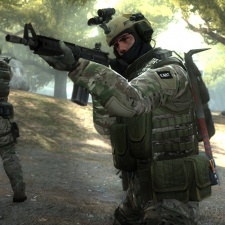Like pretty much all multiplayer games, Valve's own Counter-Strike: Global Offensive is plagued with cheaters, but the software development giant has an interesting solution to this issue.
Speaking at GDC 2018 - as reported by PCGamer - programmer John McDonald said that the firm was using deep learning techniques to tackle the cheating issue.
To put this into perspective; there are in the region of 600,000 matches in CS:GO each and every day. To regulate this many games requires 2.4m minutes of CPU horsepower so... Valve purchased 3,400 CPUs. Only half of those are required for the task at hand, but the firm wants room to expand, meaning this solution could eventually come to other games.
In fact, this has gone so well that Valve is using it to deal with problems such as fraud.
Furthermore, the game giant is looking at partnering with other titles on Steam with its anti-cheat solution. Lord knows the likes of Playerunknown's Battlegrounds needs such assistance.
All the above is in reaction to a massive uptick in CSGO chatter about cheating on the forums, with VACnet (Valve Anti Cheat) being the product of the company's hard work.
VACNet has been used to get rid of common cheats such as aimbots, with other cheats remaining harder to spot. This works in tandem with Overwatch, CS:GO's replay feature, with VacNet learning from that system.
Because we're using Overwatch and we didn't actually replace all player reports, we just supplemented them, that means that the learner [VACnet] is getting the opportunity to evolve along with human jurors," McDonald said.
"So as human jurors identify new cheating behaviour, the learner has the opportunity to do the same thing."












